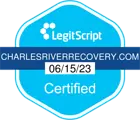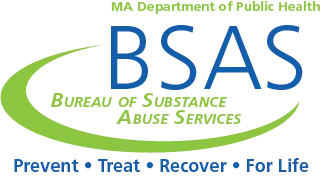Unlocking Freedom from Alcohol Addiction: The Benefits of Professional Alcohol Detox Management
Alcohol detoxification is the first critical step for anyone suffering from an alcohol use disorder. Professional alcohol detox provides an individual with medical and psychological support to safely and effectively manage the physical and psychological symptoms of alcohol withdrawal.
This support can be invaluable in helping individuals break free from the hold of alcohol addiction. In this article, we’ll go over the benefits of professional alcohol detox management.
Benefits of Professional Inpatient Alcohol Detox
Medical and professional support can help keep an individual safe and comfortable during the detoxification process. This could include medication-assisted treatment to control symptoms such as anxiety and insomnia or other medications that can reduce the risk of alcohol withdrawal seizures or other acute physical symptoms.
Professional detox can also provide psychological support to assist an individual in developing healthier coping skills and breaking the cycle of addiction. It also helps individuals build a strong foundation to maintain sobriety after detox is complete.
Detox centers, such as Charles River Recovery, can provide group and individual counseling services, access to self-help groups such as Alcoholics Anonymous, and referrals to specialized treatment programs. This support can be invaluable in guiding and helping individuals stay on track in their recovery process.
The Long-Term Benefits of Professional Alcohol Detox
Professional detox can also help individuals identify unhealthy behaviors that can lead to relapse. On the psychological level, an individual’s support during detox can help them develop positive coping skills and learn to manage stress more effectively.
The quality of an individual’s care during detox can make them feel safe and comfortable, promoting a successful recovery.
The benefits of professional alcohol detox don’t end with the detox process. Detox can also be beneficial for long-term sobriety. With the help of trained counselors, individuals can learn new ways to manage cravings, create healthy habits, and develop a strong recovery plan. Professional detox can also provide support for family members and friends, who can gain invaluable insight into being supportive and encouraging throughout the recovery journey.
Professional alcohol detox can provide a greater level of support than other forms of addiction treatment and help individuals better manage their cravings and abstain from alcohol for the long term.
Support Available for Individuals Undergoing Professional Alcohol Detox
During the process, individuals are provided with medications to help manage withdrawal symptoms and monitor their vital signs to ensure their safety. Professional alcohol detox also involves therapeutic interventions that focus on assisting individuals in coping and abstaining from alcohol.
This may include:
- Cognitive behavioral therapy
- Contingency management
- Relapse prevention
In addition to medical and psychological support, professional alcohol detox offers individuals a wide range of additional benefits. For example, individuals can get professional help in a supportive environment, making them feel more secure in their recovery process.
Professional alcohol detox can help individuals develop the skills and coping strategies they need for a successful recovery.
Additionally, individuals can connect with others with similar experiences, providing a sense of camaraderie and support.
What Role Do Medications Play in Professional Alcohol Detox?
Medications play a crucial role in professional alcohol detox. They can help reduce the physical and psychological effects of withdrawal and cravings for the substance.
Medications such as benzodiazepines, and anticonvulsants can help ease withdrawal symptoms, such as tremors, sweating, and insomnia.
What medications are available to help decrease cravings or minimize the risk of relapse post detox? Medications such as naltrexone, disulfiram, and acamprosate can help to reduce cravings and reduce relapse risk.
| Medication | Purpose |
| Disulfiram | A medication that causes unpleasant symptoms when combined with alcohol, discouraging the individual from drinking. |
| Acamprosate | Reduces symptoms of prolonged withdrawal such as anxiety, insomnia, and restlessness. |
| Naltrexone | Blocks the effects of opioids and reduces cravings for alcohol. |
| Topiramate | A mood stabilizer and anticonvulsant that can reduce cravings for alcohol. |
Note: It is important to note that these medications should only be prescribed and administered under the care of a medical professional, and it’s also important to note that these medications may not be suitable for every person undergoing alcohol detox and it’s also important to consider any possible side effects and interactions with other medications.
Conclusion
Professional alcohol detox can be a powerful tool for individuals looking to take control of their health and begin a journey to a healthier lifestyle. Through the right program and professional support, individuals can gain the tools to understand their addiction, manage cravings and relapse, and make better lifestyle choices. Ultimately, professional alcohol detox can help individuals achieve a healthier lifestyle and sustained sobriety.






